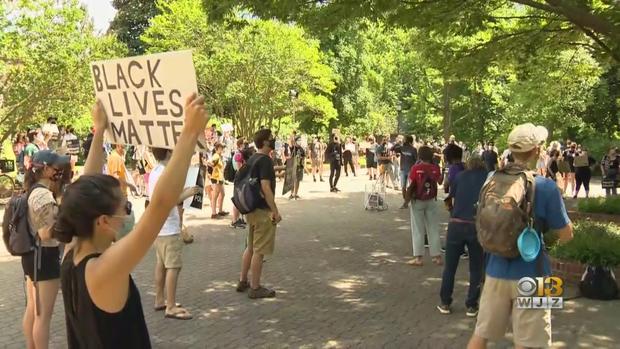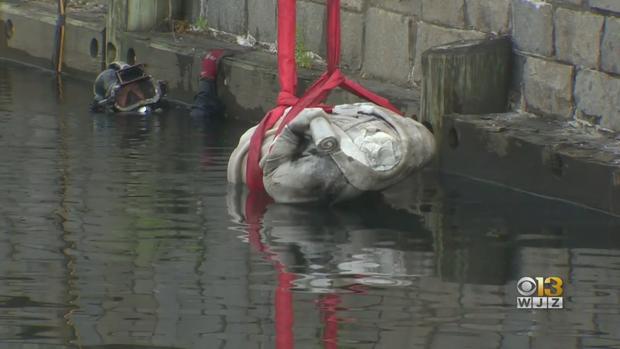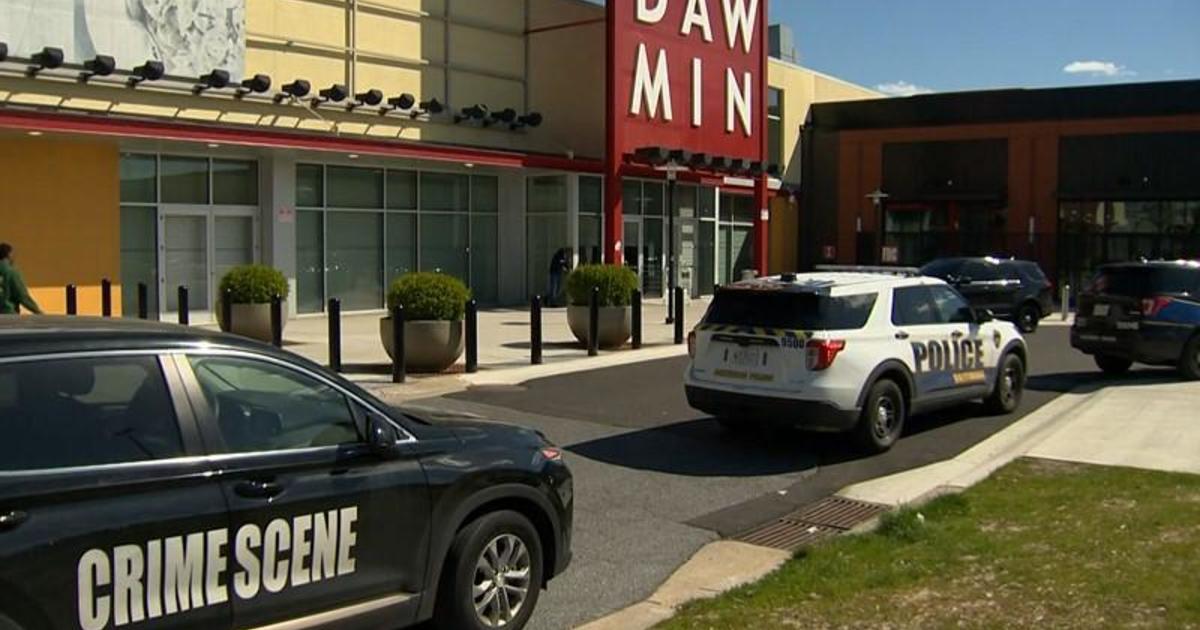Bills To Watch This Session In The Maryland General Assembly
ANNAPOLIS, Md. (WJZ) -- The latest session of the Maryland General Assembly kicked off last week with a number of changes due to COVID-19.
While the virus and recovery efforts are front of mind for lawmakers, they will also be tasked with voting on Gov. Larry Hogan's Fiscal Year 2022 budget and reviewing hundreds of other bills on topics ranging from policing reforms following multiple high-profile deaths of Black people by police officers in 2020 to decriminalizing marijuana and changing the state song.
RELATED COVERAGE:
- Maryland General Assembly Session Begins With Changes Due To COVID-19 Pandemic
- Bill Would Allow Alcohol Carry-Out, Delivery To Continue In Maryland After COVID-19 Pandemic Ends
- Gov. Larry Hogan Announces $1B COVID-19 RELIEF Act, Includes $750 Income Tax Credit For Maryland Families
- Maryland Gov. Larry Hogan's Fiscal Year 2022 Budget Proposal Includes COVID-19 Relief, $7.5B For Schools
Here are some of the bills we're watching this session in Annapolis:
Elimination of no-knock warrants
Two bills have been introduced regarding the use of no-knock warrants, which gained national attention following the death of Breonna Taylor in Louisville, Kentucky, last year. She was fatally shot as officers executed a no-knock warrant at her home.
Senate Bill 419, sponsored by Sen. Jill Carter (D-Baltimore), would eliminate the use of no-knock warrants. A similar bill has been introduced in the House of Delegates by Del. Robin Grammer (R-Baltimore County).
Last October, Baltimore City State's Attorney Marilyn Mosby announced she would no longer authorize no-knock warrants, a move the city's police union called "completely irresponsible."
Both bills would take effect October 1 if passed.
Repeal approval for creation of Johns Hopkins University police department
Senate Bill 276 would remove the state legislature's approval for Johns Hopkins University to establish a private police force. The General Assembly approved -- and Gov. Larry Hogan signed -- a law in 2019 allowing the university to create a police force. Following a wave of protests over policing in the wake of George Floyd's death in Minneapolis last summer, the university said it was putting its plans on hold.
There have been numerous protests against the plan. In 2019, a group of eight students chained themselves to the university's administrative building in part to demonstrate opposition to the proposed police force.
If approved, the bill, sponsored by Baltimore Democratic Sen. Jill Carter, would take effect October 1.
Bias and violence screening for police officers
Senate Bill 42 would require police officers to pass a psychological screening before being hired and require officers be fired if they are convicted of killing or seriously injuring someone.
Under the bill, an applicant who fails the screening would not be eligible to be hired as an officer for at least a year afterward and would be required to pass a subsequent screening.
Officers already on the force would be required to be tested every five years. Those who fail would be required to be put on desk duty and get counseling. If the officer doesn't pass another screening within the following year, they would be fired or forced to retire.
The bill would also require officers to receive violence and bias recognition training every three years.
If passed, the bill, sponsored by Sen. Ronald Young (D-Frederick County), would take effect October 1.
Police officers' duty to report
A group of eight Democratic senators is sponsoring Senate Bill 166, which would require police officers to report other officers' criminal conduct if they are aware of it under a penalty of up to five years in prison and/or a fine of up to $10,000.
The bill would take effect October 1 if passed.
READ MORE: Lawmakers Set To Tackle Policing Reform This Session In Maryland General Assembly
Decriminalization/legalization of marijuana
Several bills aim to either legalize or decriminalize marijuana in the state.
Senate Bill 420/House Bill 372, sponsored by Sen. Jill Carter (D-Baltimore) and Del. David Moon (D-Montgomery County), would decriminalize marijuana use or possession with intent to use it. The legislation also removes a prohibition on delivering, selling, manufacturing or possessing with intent to sell drug paraphernalia in some circumstances.
The bill was introduced last session but did not reach a second reading in either chamber.
Another piece of legislation, Senate Bill 143/House Bill 324, would make possession of under an ounce of marijuana a civil offense instead of a criminal offense. Current state law sets the threshold at 10 grams.
That bill is also sponsored by Carter and Moon, as well as Sen. Jeff Waldstreicher (D-Montgomery County). Last session, the House of Delegates approved it 93-44 but it did not come up for a second reading in the Senate.
House Bill 32, meanwhile, would legalize and regulate marijuana in the state. The bill's sponsor, Del. Jazz Lewis (D-Prince George's County), tweeted last month "the prohibition on the responsible use of cannabis has done exponentially more harm than good, and has devastated communities with a heavy-handed and unfair drug policy."
His bill would allow adults aged 21 or older to possess up to two ounces of marijuana.
If passed, each bill would take effect October 1.
Penalties for vandalizing or destroying monuments
Senate Bill 443/House Bill 438, the Monument Protection Act of 2021, lays out penalties for people who vandalize or destroy historically significant monuments in the state.
The legislation, sponsored by Baltimore County Republicans Sen. Chris West and Del. Nino Mangione, would make causing damage of at least $1,000 to monuments a misdemeanor punishable by between one and 10 years in prison and/or a fine of up to $2,500. Causing damage of less than $1,000 would be a misdemeanor punishable by between six months and three years behind bars and/or a fine of up to $500.
Mangione announced the bill last July, days after protesters toppled a statue of Christopher Columbus in Baltimore's Little Italy neighborhood. At the time, the delegate said in a statement "the lawless behavior we have seen exhibited in recent days by Antifa like mobs is a threat and embarrassment to every Marylander."
If passed, the bill would take effect October 1.
Renaming Columbus Day to Indigenous Peoples' Day
Senate Bill 421/House Bill 157, sponsored by Sen. Obie Patterson and Del. Wanika Fisher, both Prince George's County Democrats, would rename Columbus Day to Indigenous Peoples' Day in Maryland.
The bill, if passed, would take effect October 1, in time for the annual holiday.
Similar legislation was introduced in the House of Delegates last session but did not get to a second reading.
A number of cities and states nationwide have also renamed the holiday. Last October, the Baltimore City Council approved renaming Columbus Day to Indigenous Peoples' Day; the prior month, Howard County announced it would also no longer call the holiday Columbus Day.
Civil immunity for COVID-19 liability
Senate Bill 210/House Bill 508 would provide people civil immunity from COVID-19 liability claims if they follow applicable rules and executive orders unless they were grossly negligent or acted with intentional wrongdoing.
The legislation has bipartisan support from Republican Sens. Chris West (Baltimore County) and Mary Beth Carozza (Somerset, Worcester, and Wicomico counties) and Democratic Sens. Douglas Peters (Prince George's County) and Katie Fry Hester (Carroll and Howard counties). In the House of Delegates, the bill is sponsored by Del. Dalya Attar (D-Baltimore).
If passed, the bill would take effect July 1 and cover claims made between March 5, 2020, and 180 days after Gov. Larry Hogan's state of emergency declaration ends.
Prohibiting state/federal funding from going toward abortions
Senate Bill 423, sponsored by Sen. Johnny Ray Salling (R-Baltimore County), would prohibit federal or state funds to pay for abortions or health benefits coverage that covers abortions.
The legislation makes exceptions if the pregnancy resulted from rape or incest or if the woman's life is threatened.
If passed, the bill would take effect October 1.
Requiring schools to provide free menstrual hygiene products
Senate Bill 427/House Bill 205, sponsored by Sens. Sarah Elfreth (D-Anne Arundel County) and Chris West (R-Baltimore County) and Del. Kirill Reznik (D-Montgomery County), would require schools to provide free menstrual hygiene products to students.
The legislation would require product dispensers to be installed in at least two bathrooms at middle and high schools by October 1 and all women's bathrooms, at least one men's bathroom and all non-gender specific bathrooms by August 1, 2025.
Dispensers would be required in at least one bathroom at each elementary school by October 1 as well.
The bill passed in the House 100-31 last year but did not come up for a final vote in the Senate.
Statewide plastic bag ban
Senate Bill 223/House Bill 314 makes up the General Assembly's latest push to ban plastic bags statewide after similar legislation died last year.
The bill would ban stores from giving out plastic bags beginning July 1 or later. Exceptions include bags used to wrap meats, baked goods, newspapers, flowers and certain other items.
A number of jurisdictions in the state, including Baltimore, have already passed local plastic bag bans; under the state legislation, only the General Assembly would be able to make further rules about plastic bag usage.
Where local plastic bag bans already exist by February 1, any requirements on charging customers for other kinds of carryout bags will be allowed to remain in effect.
READ MORE: Baltimore's Plastic Bag Ban, Set To Take Effect Next Week, Postponed Due To COVID-19
Baltimore's plastic bag ban was set to take effect earlier this month, but Mayor Brandon Scott postponed its implementation, citing the effects of COVID-19 on already struggling businesses. It is now set to take effect July 9.
Democrats Sen. Malcolm Augustine (Prince George's County) and Del. Brooke Lierman (Baltimore) are sponsoring the legislation.
Changing the state song
A number of bills aim to repeal or change the state song, "Maryland, My Maryland," which has been criticized for containing lyrics calling President Abraham Lincoln a despot and the Union during the Civil War "Northern scum."
Senate Bill 8, sponsored by Sen. Cheryl Kagan (D-Montgomery County) would eliminate the state song entirely. A nearly identical bill, Senate Bill 341, would also repeal the song but would take effect October 1 instead of July 1 for Kagan's bill.
RELATED COVERAGE:
- Maryland May Repeal State Song, A Confederate Call To Arms That Called Abraham Lincoln A 'Despot,' Referred To 'Northern Scum'
- Maryland Congressman Jamie Raskin Proposes New State Song
- Maryland Bill Would 'Retire' State Song To 'Historic' Status
- Senate Passes Bill Eliminating Most Lyrics In Md. State Song
- READ: Lyrics To "Maryland, My Maryland"
A third bill, Senate Bill 87/House Bill 389, would repeal the song and set up a competition to create a new one. That bill is sponsored by Sen. Chris West (R-Baltimore County) and Del. Terri Hill (D-Baltimore and Howard counties).
Efforts have been made in previous years to retire the state song, including in 2018 and 2016.
Last year, Rep. Jamie Raskin co-wrote a song he proposed as a replacement.
For the latest political news from WJZ, click here.






